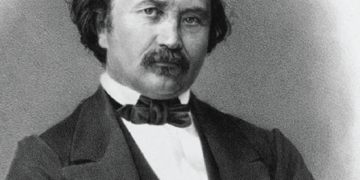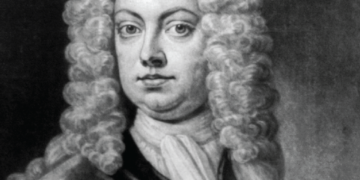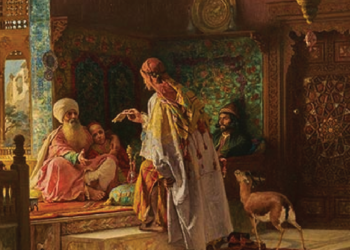Madame Motteville
1) Her Biography
Françoise Bertaut, later known as Madame de Motteville, was born in Paris in 1621 into a family connected to the French court. Her father, Pierre Bertaut, was a gentleman in the service of the crown, and her mother, connected to Spanish nobility, ensured that she was raised with a cosmopolitan sensibility. From an early age, Françoise was immersed in the refined culture of the seventeenth-century French aristocracy, acquiring a deep familiarity with court etiquette, literature, and diplomacy. These formative years shaped the observant and reflective qualities that would later define her memoirs.
Her introduction to the royal sphere came early in life, when she was appointed to the household of Queen Anne of Austria. The position brought her into close contact with the intrigues, alliances, and tensions that dominated the French court. While still in her teens, she was married to Pierre de Motteville, a man of considerable means and status, from whom she would later take her widely recognised name. Tragically, her husband died within a few years of their marriage, leaving her widowed while still young, a condition that paradoxically afforded her a measure of independence rare for women of her time.
The political climate during her early adulthood was marked by the regency of Queen Anne and the looming power struggles between royalists and factions opposed to the centralised authority of the crown. Madame de Motteville, owing to her proximity to the Queen, found herself inevitably involved in these tensions, though she maintained a reputation for discretion and loyalty. Her personal closeness to Queen Anne was a defining aspect of her life, granting her both privileged access to the inner workings of the monarchy and the responsibility to navigate its many hazards with care.
In the 1640s, during the unrest of the Fronde, her position became precarious. Although she was not a political actor in the overt sense, her association with Queen Anne meant that she was often regarded as aligned with royalist interests. This connection occasionally brought her under suspicion, but her careful, measured manner helped her avoid the more dangerous consequences that befell others in the Queen’s circle. She learned to observe quietly, recording events in her mind with the precision and detail that would later characterise her writings.
After the turmoil subsided, Madame de Motteville continued her service to Queen Anne, becoming not only a lady-in-waiting but also a confidante. This intimacy allowed her to witness key events in the history of France, from the political manoeuvrings of Cardinal Mazarin to the gradual consolidation of power under Louis XIV. Unlike many of her contemporaries, she refrained from seeking personal gain through her position, preferring instead to maintain her integrity and the trust of the Queen.
Her later years were devoted increasingly to reflection and writing. Motivated partly by a desire to preserve the truth of events as she had seen them, and partly by an awareness that much of the history of her time was being distorted by political bias, she began composing her memoirs. These writings, although deeply personal, also offered a broader commentary on the character of the French court and the moral lessons to be drawn from its intrigues.
Madame de Motteville died in 1689, leaving behind a legacy not of political conquest or social dominance, but of insight, intelligence, and careful testimony. Through her writings, she provided a window into the life of a seventeenth-century courtier who, while neither a central political figure nor a passive observer, played a vital role as a chronicler of her age. Her life was a rare combination of loyalty, discernment, and the quiet power of observation, qualities that ensured her place in French literary and historical tradition.
2) Main Works
Mémoires de Madame de Motteville sur Anne d’Autriche et sa cour
Her principal work, the Mémoires were written over a span of years and published posthumously. They recount her experiences as a lady-in-waiting and confidante to Queen Anne of Austria, covering the political and social life of the court from the 1630s to the Queen’s death in 1666. Madame de Motteville combines meticulous attention to detail with moral and philosophical reflection, portraying not only major events—such as the Fronde and the influence of Cardinal Mazarin—but also the more intimate concerns of the Queen, from her piety to her political anxieties. The memoirs are as much a study of character as they are a chronicle of events, showing Madame de Motteville’s skill in subtle psychological observation.
Histoire de la reine Anne d’Autriche, épouse de Louis XIII
This narrative is often considered a companion to her memoirs, offering a more structured and continuous account of Queen Anne’s life. It traces the Queen’s Spanish origins, her marriage to Louis XIII, her long struggle for political influence, and her eventual role as regent for her young son, Louis XIV. While based on the author’s personal knowledge, it also draws from contemporary reports and correspondence, lending it a semi-biographical, semi-historical character. The work presents Queen Anne as a woman of both political resilience and deep personal faith, while also revealing the complex challenges faced by a foreign-born queen in France.
Correspondance et fragments inédits
Although less famous than her Mémoires, Madame de Motteville’s surviving letters and fragmentary writings reveal her voice in a more private and unguarded form. Addressed to friends, members of the nobility, and sometimes to political figures, these letters provide insights into her thoughts on daily court life, literature, religion, and the moral responsibilities of those close to power. The fragments, many of which remained unpublished in her lifetime, include reflections on female virtue, loyalty, and the importance of recording history truthfully.
Selected court anecdotes and moral reflections (embedded within her writings)
Beyond her formal works, Madame de Motteville left behind a number of brief narratives and moral commentaries embedded in her memoirs and correspondence. These often take the form of illustrative episodes—conversations with the Queen, disputes among courtiers, or moments of quiet piety—that illuminate larger themes about human nature, ambition, and the fragility of political fortune.
3) Main Themes
Loyalty and Devotion
A defining theme in her works is the unwavering loyalty she expressed towards Queen Anne of Austria. This devotion is not presented as blind allegiance, but as a principled commitment to friendship, duty, and honour. Through her depictions of the Queen, Madame de Motteville underscores the idea that loyalty should endure despite political turbulence, personal risk, or courtly intrigue. Her reflections also suggest that such fidelity was, in her eyes, a moral virtue that distinguished the trustworthy from the opportunistic.
The Nature of Power and Influence
Madame de Motteville’s memoirs consistently explore the mechanisms through which influence is gained and lost at court. She examines both the formal structures of political power and the informal networks of personal alliances, favours, and rivalries. The rise and fall of figures like Cardinal Mazarin serve as case studies for her observations. She often highlights how fortune, personality, and perception can weigh as heavily as strategy or competence in determining one’s political standing.
Female Agency in the Courtly World
Although she writes from within a male-dominated political environment, Madame de Motteville pays close attention to the ways in which women navigated the constraints of their positions. Queen Anne’s political manoeuvring, as well as the quieter forms of influence exercised by ladies-in-waiting and noblewomen, form an important part of her narratives. Her works implicitly acknowledge that women could wield considerable authority, not through direct control of institutions, but through counsel, mediation, and the shaping of public perception.
The Fragility of Political Fortune
Her writings convey a persistent awareness of the instability of courtly life. Many of her anecdotes point to the sudden reversals of fortune that could befall both favourites and enemies of the crown. She uses such examples to meditate on the transient nature of human success and the importance of humility in positions of influence. For Madame de Motteville, political life was a delicate balance between opportunity and danger.
Morality and the Ethical Dimensions of History
Unlike some chroniclers of her era, she did not present events as merely a sequence of occurrences, but sought to draw moral lessons from them. Whether commenting on the Queen’s piety, the duplicity of courtiers, or the dangers of ambition, she viewed historical writing as a form of ethical reflection. This approach lends her works a philosophical depth, making them as much meditations on virtue and vice as they are records of political events.
Observation and Truth-Telling
Madame de Motteville took her role as an eyewitness seriously, insisting on accuracy even when her accounts contradicted more popular or flattering versions of events. She valued first-hand observation over rumour and sought to preserve an honest record for posterity. This commitment to truth was also tied to her belief that history should serve as a moral guide, not just a collection of entertaining tales.
Religion and Piety in Public Life
Throughout her writings, she treats religion not only as a personal matter but as a crucial element of public and political conduct. Queen Anne’s devotion is portrayed as both a sincere expression of faith and a means of guiding her political decisions. Madame de Motteville reflects on how piety could act as a source of strength and legitimacy, particularly for women in positions of power, though she also notes the tensions between spiritual ideals and worldly necessities.
4) Motteville as a Historian
Madame de Motteville’s standing as a historian rests on the rare vantage point she occupied within the seventeenth-century French court and the distinctive way she recorded events. Unlike official chroniclers, whose works were often shaped by political directives or the need to flatter the monarchy, she approached her historical task from the perspective of a close observer and confidante. Her access to Queen Anne of Austria’s inner circle granted her a depth of information that many historians of her age could only speculate upon. This allowed her to weave a narrative informed by both the grand political developments of the period and the intimate realities behind them.
Her Mémoires are exemplary of her historical method, combining chronological narration with vivid portraits of key figures. She was attentive to context, often situating events within the broader political, cultural, and religious environment. This sensitivity to the forces shaping behaviour gives her work a nuanced quality that distinguishes it from purely anecdotal court memoirs. Rather than treating history as a procession of dates and treaties, she presented it as a complex interplay of personalities, ambitions, and circumstances, capturing both the public and private dimensions of political life.
One of her strengths as a historian was her commitment to accuracy. She repeatedly emphasised her reliance on first-hand observation and direct communication with principal actors, particularly Queen Anne herself. When recounting events she had not personally witnessed, she often clarified the source of her information and avoided presenting speculation as fact. This methodological caution stands in contrast to many contemporary writers, whose works were infused with rumour or partisan distortion. Her aim was to preserve a truthful account, even when it contradicted more flattering or widely accepted versions of events.
Madame de Motteville’s historical voice was also shaped by her moral sensibility. She did not confine herself to merely recording what happened; she sought to interpret the motives and ethical implications of actions. This reflective approach aligns her with the tradition of moral historians, for whom the past was a repository of lessons for future conduct. She was particularly interested in the nature of loyalty, the dangers of ambition, and the delicate balance between personal virtue and political necessity. Her histories are thus as much about the moral landscape of the court as they are about its political chronology.
Her work reflects a keen awareness of the limitations and biases inherent in historical writing. She acknowledged that her proximity to the Queen might incline her towards sympathy, yet she strove to present an honest picture, even when it meant revealing the Queen’s occasional misjudgements or political missteps. This capacity for measured critique enhanced her credibility and ensured that her works could serve as both homage and critical record.
In the wider context of French historiography, Madame de Motteville occupies an unusual position. She was neither a detached scholar nor a propagandist, but rather a participant-observer who combined the precision of the historian with the insight of the insider. This dual role allowed her to bridge the gap between lived experience and historical narrative, offering a perspective that is simultaneously personal and authoritative.
By the time of her death, her writings had secured a lasting place in the corpus of French historical literature. Modern historians continue to value her accounts not only for their factual content but also for their interpretative richness. Her legacy as a historian lies in her ability to capture the interplay between political events and human character, producing works that are both faithful records of her time and enduring meditations on power, loyalty, and morality.
5) Her Legacy
Madame de Motteville’s legacy endures as that of a rare voice in seventeenth-century France who combined intimate court knowledge with a reflective, moral approach to history. Her writings are prized for their vivid, first-hand perspective on the reign of Queen Anne of Austria, the turbulence of the Fronde, and the early years of Louis XIV’s rule. They provide a counterbalance to the more partisan or propagandistic accounts of her contemporaries, offering a measured, thoughtful narrative that has allowed later generations to access the court’s inner workings without the distortions of political flattery or malicious gossip.
One of the most significant aspects of her legacy is her role in preserving an authentic portrait of Queen Anne. While many accounts either idealised the Queen or painted her as politically inept, Madame de Motteville offered a nuanced depiction that acknowledged both her strengths and her shortcomings. In doing so, she contributed to a more balanced historical record, enabling modern scholars to form a fuller understanding of the Queen’s political role, personal piety, and strategic resilience in a male-dominated environment.
Her memoirs also remain a cornerstone for historians studying the social and political fabric of the French court. She recorded not only major events but also the subtleties of etiquette, interpersonal relationships, and the quiet manoeuvring that often shaped outcomes behind the scenes. By documenting these details, she ensured that future generations would understand the court not merely as a stage for political decisions, but as a complex ecosystem of personalities, ambitions, and codes of conduct.
Beyond their historical content, her writings are valued as literary works. Her prose, marked by clarity, elegance, and restraint, stands in contrast to the more dramatic or satirical tone adopted by some of her contemporaries. This literary quality has helped her memoirs endure not only as sources for historical study but also as examples of refined seventeenth-century French writing. She demonstrated that history could be both truthful and artfully composed, a combination that continues to appeal to modern readers.
Her perspective as a woman also adds to her enduring significance. While female voices in historical writing of her era were comparatively rare, Madame de Motteville’s work shows that women could be both acute observers and serious chroniclers of political life. In this way, she helped expand the scope of historiography, paving the way—whether consciously or not—for later generations of women writers and historians to contribute to public discourse.
The moral tone of her work, too, has left a lasting impression. Her insistence on linking historical events to ethical reflections gives her writings a timeless quality, making them more than just documents of their time. Readers continue to find value in her observations on loyalty, ambition, humility, and the fragile nature of power—lessons that transcend the specific context of seventeenth-century France.
Today, Madame de Motteville’s name is invoked not only in discussions of French history but also in studies of memoir as a literary form. Her ability to combine insider testimony with reflective commentary ensures her a place alongside other great chroniclers of court life. Her legacy rests on the integrity of her vision: an honest, insightful account of an era in which truth was often sacrificed to the demands of politics, but which she sought to preserve for posterity with dignity and fidelity.












